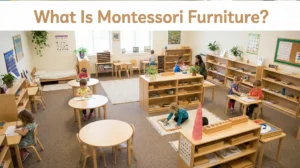You might be familiar with the saying “follow the child”. What did Maria Montessori meant when she was encouraging teachers and parents to follow their child?
In her time, she was one of the first to really observe the children. She really understood that children were not empty vessels. She observed how they developed and what they needed!
At the time, the school system and the parenting style were all about “controlling” children’s behaviour, molding them into obedient citizens. It was considered that children were unruly, naughty, were empty “vessels” and needed to be corrected and taught everything. Violence against children was the norm.
Maria Montessori was not a a teacher and she had no preconceived idea about how to educate children so she went onto “observing them scientifically”.
Out of necessity, she involved them into the daily life of the classroom. As she didn’t have lots of means, she offered them what she had: a few materials and every day activities, conversation and language activities, words that she was writing on paper and so on…
Step by step, she uncovered what she would describe at the “new child”, a child who was focused, able of empathy, able to work in a group, able to respect others… And that child didn’t need to be punished or rewarded. That child didn’t need to be taught, he was able to learn when he was provided with a suitable environment.
This was an amazing discovery at the time!
It seems obvious now that children have their own ideas, have interests and are able to learn when it is interesting. And yet, mainstream education still decides what curriculum to teach, most teachers will decide of a group topics and there are targets to achieve regardless of the child’s individual development. Sight…
Even if your child doesn’t attend a Montessori school or is not home educated, you can still embrace this idea of “following your child”. Let’s see how:
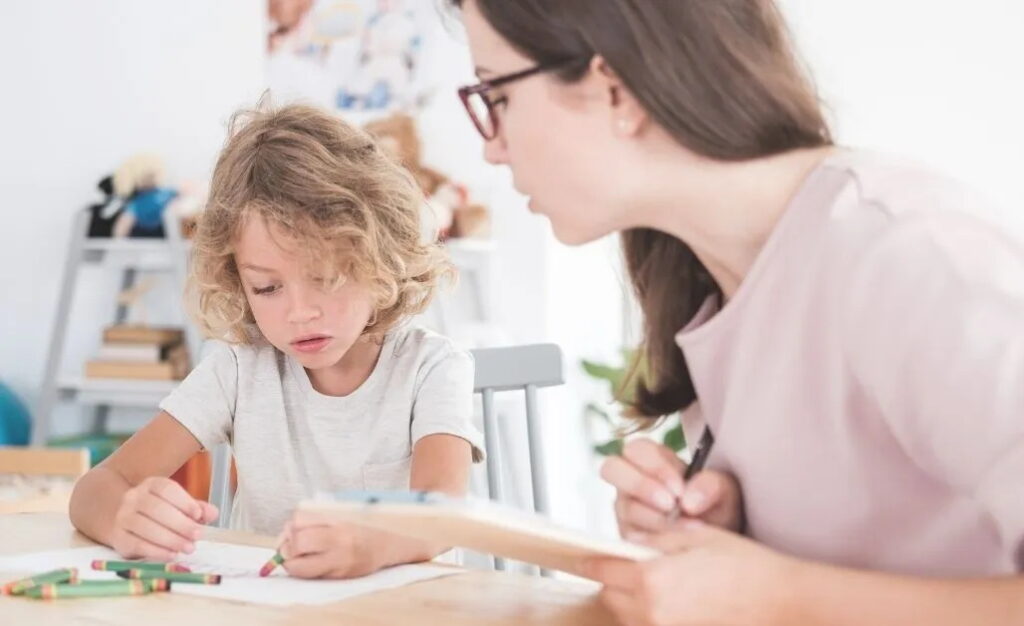
Observe your child:
As a Montessori parent or teacher, the first thing you need to do is to observe your child. What do they play with “spontaneously”? What skills are they working on? Do they seem to be all about “physical activities” neglecting any tray based activities? Do they seem to be obsessed with small objects? Or lining up? Do they always want to chat with you or asking you questions constantly?
It’s very important to observe without judging. We cannot deny that we have expectations and preconceived ideas about what our children should learn. But the truth is that they know what they need.
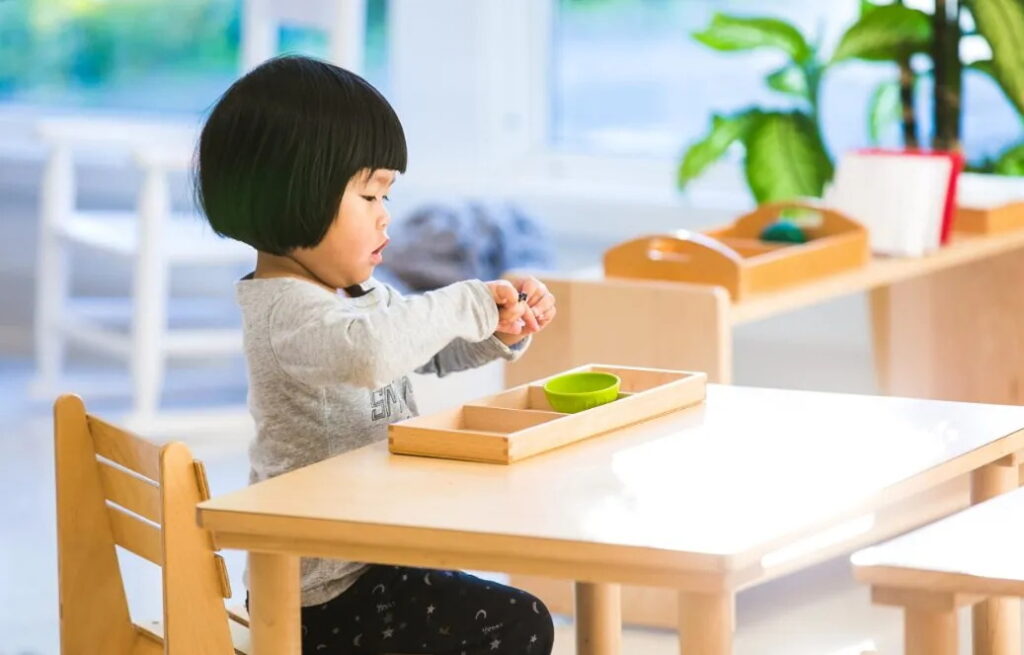
Provide an environment that allows freedom
For the children to really show us who they are, we need to provide them with a safe environment that will allow them to explore freely. So after you have observed your child, make sure your home is prepared for them. Do you encourage your child to be as independent as possible? Do you provide choices? Can you child have access to activities, tools and whatever else he might need?
Freedom within limits
Following your child doesn’t mean let him do whatever he wants whenever. It’s a common misconception and something that even put some parents of the Montessori method entirely. Life is full of “limits”. If we don’t respect others, or belongings or the Earth, we will suffer the consequences. So don’t be afraid to have some limits as our children are only little and they still learn.

Activities based on their interests and needs
“Follow the child, they will show you what they need to do, what they need to develop in themselves and what area they need to be challenged in. The aim of the children who persevere in their work with an object is certainly not to ‘learn’; they are drawn to it by the needs of their inner life, which must be recognized and developed by its means”
What do we mean by interests? I like to distinguish “needs” and “wants” here.
Needs would be what your child needs to progress in his development such as fine motor skills, gross motor skills, developping vocabulary, learning some basic courtesy, and so on… So you might have observed that your child struggle to hold a pencil. You will then work on pincer grip by giving him some activities such as playdough or transferring activities with spoon… You are covering a “need”.
Interests sometimes are “unnecessary want“. Following your child doesn’t mean “following their interests, no matter what they are”.
Often, when parents discover Montessori, their children have been exposed already to “fantasy” and “highly stimulating toys”, “screen time” and many “structured play” where the adult entertains the child.
So you may think that when your child asks for a new Pokemon, that must be what he needs or if you give them total freedom with screen, they might self-regulate.
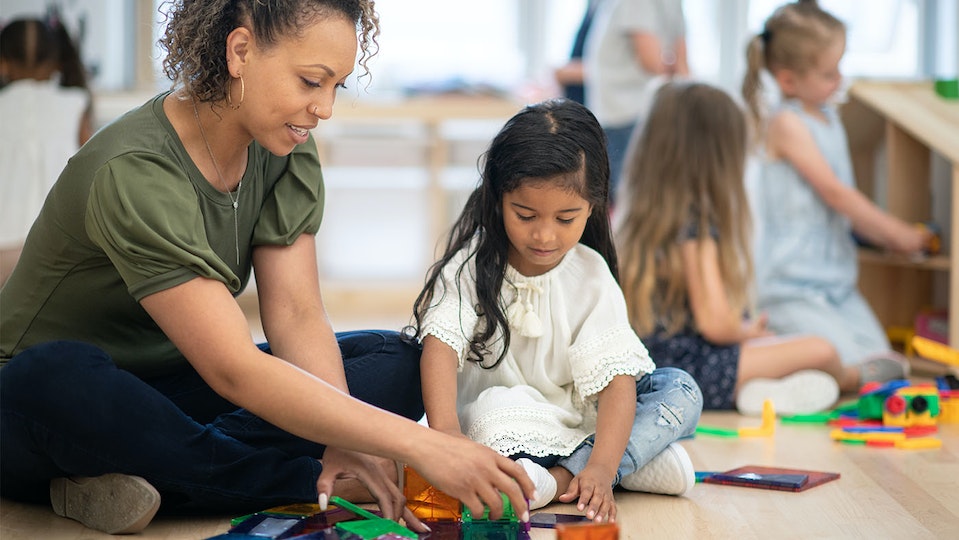
if you didn’t start with Montessori or a simple/uncluttered way of playing, then you will need a period when you remove most highly stimulating aspects of your child’s life.
During that time, you may feel that you are not following your child but after a few days/weeks, your children will really show you what they needs.
This was a similar experience for Maria Montessori when she welcomed children in the first classroom. She had toys that she removes, seeing that it was not helpful and the children were all over the place at first and she gave them lots of practical life (out of necessity, not just to keep them busy pouring between to jugs, the children had to clean the table, had to help giving bath to the youngest). And slowly, the group settled and the children started to flourish. When you provide an environment that allows your child to explore freely, they will start to show you what they really need, you will uncover their sensitive periods. Read more about sensitive periods here.
Another way to see it is to compare our nutriments needs vs sweets. We all love eating some sweets or candy but we need proper food. So give some Pokemon cards to your child and offer him some other opportunities to “sort”, let your child watch a bit of television and make sure he goes out every day… It’a matter of balance.
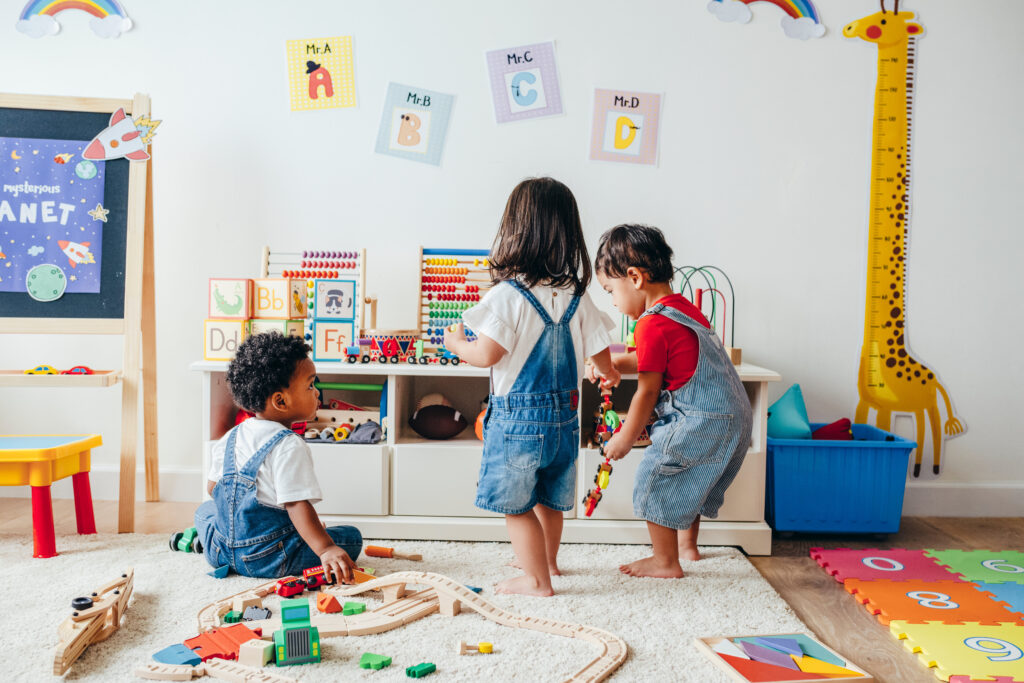
Your role as a Montessori parent
The famous quote “follow the child” is in fact “Follow the child as his leader”. We allow them to lead us, to show us the way to support them.
As Maria Montessori said: Anyone who wants to follow my method must understand that he should not honour me but follow the child as his leader.
Your role is to provide the opportunities to learn, grow, and develop in a safe and carefully prepared environment.
We are their leader but a leader who cheer them up, respect them and never force them.
The environment is created with the child in mind, considering both his current development and his future needs. We respect and honour the child’s natural progression, providing what he needs at each stage.
We can provide activities, invitations to learn and opportunities. But ultimately, the child will be the one who is going to choose what he does, the one who is going to learn…
Are you ready to follow your child?








